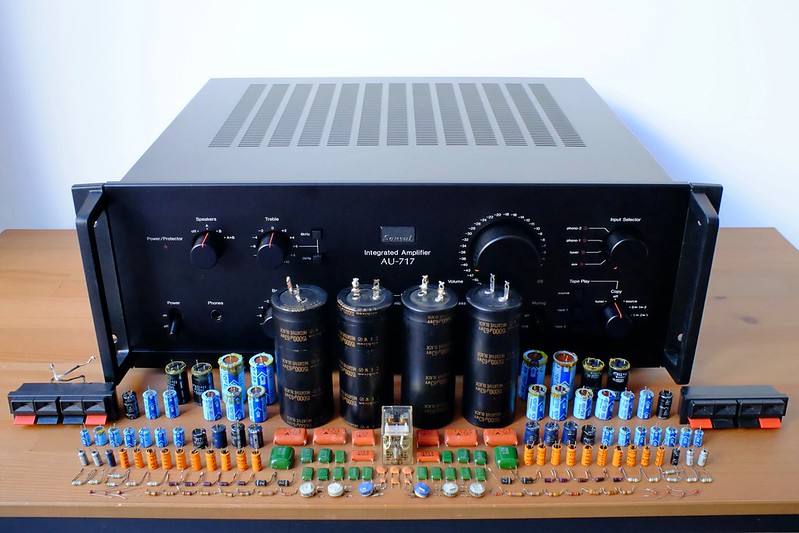retrospective
pfm Member
I didn't have any problem with your project -- fixing some bad joints sounds like something that would have the potential for far more impact than a high end cable.
It's just the thread title was a bit mysterious and sensationalist, and then the thread itself has very little info. I asked what kind of amp because it would be interesting, for example, to know how old it was. Or what type (SS vs valve), or what model. It seems like a secret for some reason.
Far from it the amp in question was a tired old 1971 Sansui au-101 that had on the face of it iffy 2sc871 transistors,a common fault which are often replaced,though in this case resoldering the joints not only managed to save the original transistors but bought about an overall benefit to the sq


